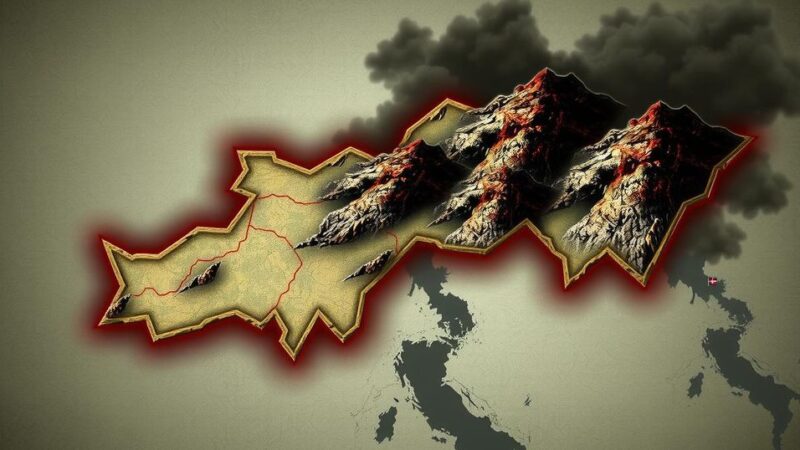Recent developments in the Middle East highlight escalating tensions, particularly between Israel and Iran, amid rising civilian casualties from ongoing military actions. Israeli Prime Minister Netanyahu has indicated a shift in strategy towards limiting strikes on Iranian military targets while clashes continue in southern Lebanon, involving UN peacekeepers, amidst condemnation from international leaders. The humanitarian situation remains dire, with significant loss of life reported in Gaza and Lebanon.
The Middle East crisis has escalated with significant developments involving Israeli military actions and tensions in Lebanon. Israeli Prime Minister Benjamin Netanyahu has assured the Biden administration that strikes against Iran will be limited to military targets, avoiding nuclear or oil sites, a response reportedly shaped by Iran’s missile attacks on October 1. This approach aims to curtail the potential for a broader conflict and is seen as a relief by U.S. officials concerned about escalating energy prices and regional stability. Amidst this backdrop, Qatar’s Emir, Sheikh Tamim bin Hamad Al-Thani, criticized Israel’s actions, describing them as premeditated aggression in the West Bank and Lebanon. In his address to the Shura Council, he referred to the current situation as a “collective genocide” and condemned Israel’s impunity in the region. The UN Security Council has expressed concern over recent injuries to UN peacekeepers in Lebanon, urging all parties to respect the safety of these personnel. Netanyahu dismissed allegations of Israeli forces targeting UN peacekeepers as “completely false” and argued that Hezbollah exploits peacekeeping positions for their operations. He has urged UN forces to withdraw from frontline zones for their own safety. However, UN officials maintain their presence is crucial for regional security. In a tragic turn, recent Israeli airstrikes have led to high civilian casualties, notably in Aitou, where an attack resulted in the deaths of 21 individuals, including displaced families. The ongoing conflict in Gaza remains severe, with the Israeli military facing accusations of significant civilian casualties amidst its military campaign against Hamas, which has led to staggering death tolls in recent weeks. Additionally, Netanyahu is reportedly contemplating a drastic humanitarian plan for northern Gaza, which would potentially lead to starvation of those remaining in the area labeled a military zone. This strategy has drawn international scrutiny and condemnation from various leaders and humanitarian organizations, stressing the importance of adhering to international humanitarian law and protecting civilian lives.
The ongoing conflict in the Middle East involves a complex interplay of military actions, international diplomacy, and humanitarian crises. Israel’s military operations are often framed within the context of self-defense against perceived threats from Iran and Hezbollah. The geopolitical landscape is complicated by U.S. involvement, with Washington seeking to manage its alliances and prevent escalation. The UN’s role as a peacekeeping force is critical, especially in Lebanon, where tensions remain high. Qatar’s leadership indicates a growing regional discontent with Israel’s military strategies, pushing for international accountability in the face of rising civilian fatalities in ongoing conflicts.
In summary, the Middle East remains embroiled in a multifaceted crisis marked by military engagements, international diplomatic maneuvers, and rising humanitarian concerns. Israeli military strategies are under scrutiny as they balance national security interests with international pressures and the devastating impact of conflict on civilian populations. The call from global leaders for a halt to violence and respect for humanitarian laws underscores the urgent need for diplomatic resolutions to foster stability in the region.
Original Source: www.theguardian.com





